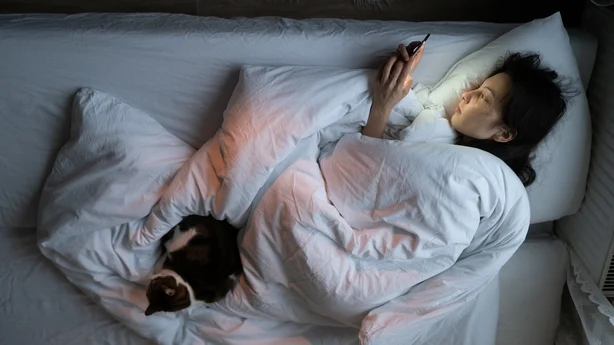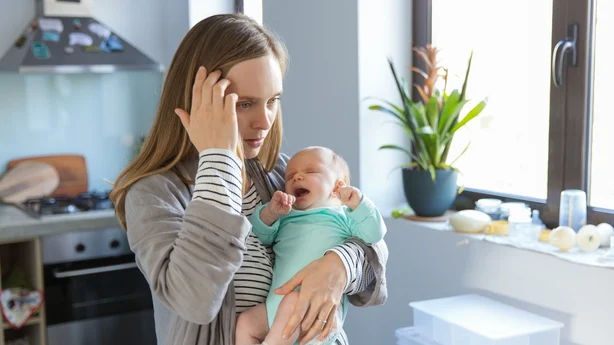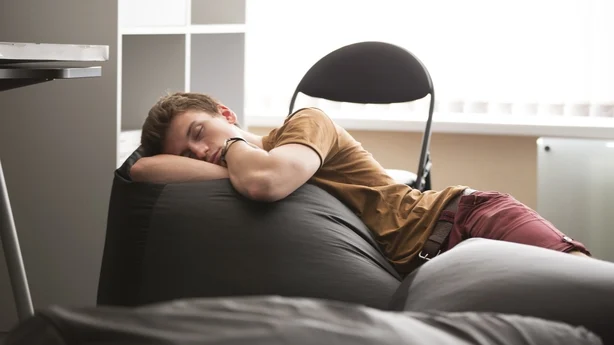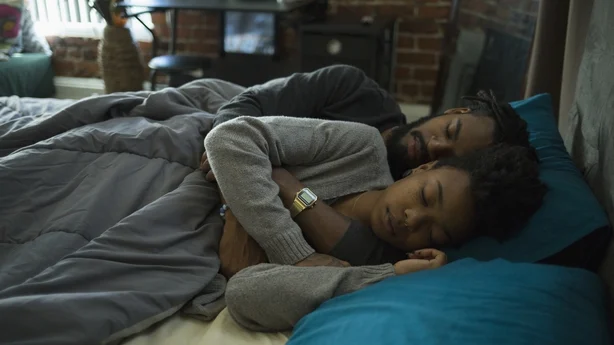Niamh Delmar is a Chartered Registered Counselling Psychologist and provides Psychological Support Workshops to work environments. Here she writes about the importance of getting a good night's sleep.
Sleep has a significant impact on mental health and is linked with anxiety, depression, bipolar disorder, and other conditions. There is a bidirectional relationship; mental health disorders disturb sleeping patterns, and a lack of sleep is often a contributing factor to psychologically ill health.
Stages of sleep such as NREM (non-rapid eye movement) and REM (rapid eye movement) affect brain activity. The number of hours that you sleep is not as important as the quality of your sleep. Insufficient deep sleep is detrimental to physical and psychological health.
During this phase, the cells repair, immunity is strengthened and learning and memory are boosted. The brain processes the day's events. Disrupted sleep cycles can lead to irritability, accidents and injuries.
Over time, this increases the risk of a psychiatric condition. A healthy sleep cycle is also linked with the production of the hormones leptin and ghrelin. These control feelings of hunger and fullness which helps in preventing weight gain. Your 'chronotype’ refers to your preferred sleep and wake schedule based on your circadian rhythm. This falls on a spectrum from morning larks to night owls.

Contributing factors
There is a multitude of contributing factors associated with having low-quality sleep. Approximately 75% of people experiencing depression show signs of insomnia or hypersomnia. Anxiety disorders and stress are also linked with sleep disruption as the person is in a state of hyperarousal.
You won’t sleep well with elevated levels of adrenalne, noradrenaline or cortisol. During manic episodes of bipolar disorder, there is a reduced need for sleep which exacerbates the mania. Individuals with ADHD and autism often report trouble sleeping.
Menopause and grief also aggravate sleep cycles. Alcohol is often used as a sleeping aid, but it is ineffective; while it may help to induce sleep, the quality of sleep is compromised as, later in the night, the alcohol gets metabolised triggering arousal.
Parents of babies often experience sleep deprivation. Each baby has a unique feeding and sleeping pattern. Surveys have found that the average baby under one year sleeps for less than four hours at a stretch.
Poor sleep is highly associated with post-partum depression. According to the Sleep Foundation, parents’ sleep often does not return to pre-pregnancy levels until the oldest child is 6 years of age! Sleep fragmentation (waking frequently) has worse effects than the number of hours slept, as the person only gets a light sleep. Higher stress levels, emotional dysregulation and less positive parenting styles are side effects of sleep disruption.

Sleep disorders
Insomnia is when you have difficulty falling or staying asleep. As a result, the person feels sleepy during the day affecting daily functioning. Approximately two-thirds of people may experience insomnia periodically.
Acute insomnia is a short-term condition and chronic insomnia is disruption present for three months or more. Sleep apnea is a sleep-related breathing disorder. People may snore loudly and wake up gasping for air. Obstructive sleep apnea involves the relaxation of the throat blocking the upper airway. Central sleep apnea is when the brain sends signals to the breathing muscles. Many cases go undiagnosed.
Parasomnias are most common in children and include bed wetting, sleep-walking and night terrors. Sleep paralysis involves elements of both sleep and wakefulness. There is a brief loss of muscle control. Atonia occurs which is an inability to move and hallucinations often occur. Narcolepsy is a serious condition when the person falls asleep at inappropriate times.

Ways to get healthier sleep cycles
The first step is assessment to identify the underlying causes, or what type of sleep disorder might be at play. Or you may feel like you aren’t getting enough sleep even though you are. Sleep disorders clinics offer investigation and treatment.
For sleep apnea, lifestyle changes and devices can help a blocked airway. Evidence-based treatments for anxiety, depression and other psychological and psychiatric conditions can alleviate sleep disruption.
Maintaining a sleep schedule helps a rhythm to be established. It is important to get up and go to bed at the same time every day, including days off. Make sure throughout the day that you are getting adequate cognitive, physical and interactional stimulation.
Healthy lifestyle habits will accumulate, and aid a deeper and better quality of sleep. Take a diet review and eliminate or reduce sugar, caffeine and alcohol. Exercise, movement and meditation practices are positive steps to take. Try to get plenty of fresh air and daylight during the day. Avoid meals a few hours before bedtime and incorporate a wind down period before sleep such as a lavender bath, a light read, relaxing music or sounds, or sleep meditation or hypnosis.

Adults need bedtime rituals just like children do. Maximise comfort and relaxation in your room and bed. Optimal temperature, high-quality bedding and blackout curtains help.
If you experience sleep anxiety or dread bed, remind yourself resting is of benefit as it’s the quality not duration that matters more. Avoid clock watching or being sleep obsessional. Keep the mobile phone out of the bedroom and reserve your bed for sleep and unwinding only. Blue light exposure from devices has to be avoided.
While short power naps during the day are beneficial, sleeping for longer periods will confuse your internal clock. When lying in bed, consciously release tension in each area of your body slowly from your feet up to your head.
Train your mind to slow down thoughts spinning by using mindfulness, mantras and writing a few ideas or concerns in your notebook before sleep to offload the mental clutter. Focus on the gaps between each word in your inner dialogue to slow down your mind racing.
Remind yourself it is the time for sleep and rest. The quality of your sleep can improve.
If you have been affected by issues raised in this story, please visit: www.rte.ie/helplines.
Disclaimer: The copyright of this article belongs to the original author. Reposting this article is solely for the purpose of information dissemination and does not constitute any investment advice. If there is any infringement, please contact us immediately. We will make corrections or deletions as necessary. Thank you.






